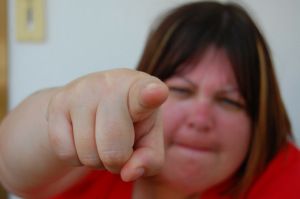News
Danish teachers on the frontline
This article is more than 7 years old.
Classroom teachers are increasingly being exposed to violence, threats and harassment from primary school students

More and more teachers are being threatened in Denmark (photo: Luke Addison)
Students are calling teachers “bitches” and threatening to punch them or report them.
These are just some of the incidents that teachers at public schools in Denmark face on a daily basis, according to a report from Det Nationale Forskningscenter for Arbejdsmiljø (NFA), the national research centre for the working environment
The report takes a comprehensive look at the harassment, threats of violence and actual violence endured by public school teachers in recent years, and it pulls no punches in stating that student behaviour has been steadily getting worse.
On the rise
One out of five teachers polled said they had encountered violence over the past year, while one in four said they had been threatened. Since 2010, many teachers have reported cases of work-related diseases or afflictions as a result of threats, violence and traumatic experiences.
READ MORE: Danish student brings his mom to school while he attacks two teachers
Merete Riisager, the education minster, created an initiative last year aimed at curbing violent episodes and threats in schools. A guide was developed to help schools prevent and deal with violence and threats.
But given the seriousness of the report, Riisager herself said she was “not certain” that a guide was enough to combat the increasing problem.
“It is also about a co-operation between myself, the government, the municipalities and the school leaders,” she told DR Nyheder. “We must decide that the serious violence is unacceptable.”
Resources needed
Dorte Lange, the vice chair of the Danish teachers’ union Danmarks Lærerforening, said that attention should be paid to providing support for students with special needs who have been included in public school.
The 2012 Inclusion Act stipulates that children with special needs should be included in the general student population for as long as possible.
Lange said the higher numbers of threats and increase in violence have occurred because those students are being included without the right resources to help them.
“There are students who are not getting the support they need and teachers who wish they could do more for them,” said Lange.
“But they are also dealing with 25 or 26 other students, which can cause a student to get frustrated and act out.”










































